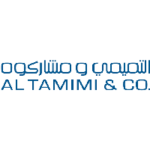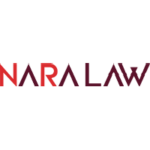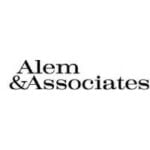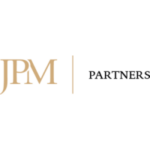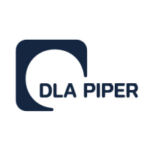-
Is the system of law in your jurisdiction based on civil law, common law or something else?
In the Netherlands, the system of law is based on civil law.
-
What are the different types of vehicle / legal forms through which people carry on business in your jurisdiction?
In the Netherlands, there are company forms with and without corporate legal personality. The legal structures with corporate legal personality (Legal Entities) are:
- The “Besloten Vennootschap” (BV), which is a private limited company with limited liability.
- The “Naamloze Vennootschap” (NV), which is a public company with limited liability.
- The “Foundation” (Stichting), which is a corporate entity, without any share capital, members or shareholders.
- The “Coöperatie” (Cooperative), which is a special type of association that enters into specific agreements with and on behalf of its members. The Cooperative has no shareholders.
The structures without corporate legal personality are:
- A partnership, whether general (“vennootschap onder firma” or “VOF”) or limited (“commanditaire vennootschap” or “CV”).
-
Can non-domestic entities carry on business directly in your jurisdiction, i.e., without having to incorporate or register an entity?
Foreign entities could register a Dutch branch office or register the foreign entity in the Netherlands with the Dutch Chamber of Commerce and start doing business through this office location. The branch office is not considered a separate legal entity but an extension of the ‘parent’ company. Alternatively, a foreign entity could incorporate a Dutch company and become a (sole) shareholder of such entity. There are no special restrictions for foreign-owned companies intending to start a business in The Netherlands.
-
Are there are any capital requirements to consider when establishing different entity types?
NVs must have a minimum issued and paid-up capital of EUR 45,000. For BVs no minimum issued and paid-up capital is required, provided that at least one share must be issued to a person or legal entity other than the BV or its subsidiaries. No capital requirements apply in principle to the other Legal Entities.
-
How are the different types of vehicle established in your jurisdiction? And which is the most common entity / branch for investors to utilise?
The Legal Entities are established by means of the execution of a notarial deed of incorporation before a Dutch Civil Law Notary. Partnerships (the structures without legal personality) could in principle be established by means of a private instrument. The BV is the most commonly used for professional investments by both domestic and foreign entrepreneurs.
-
How is the entity operated and managed, i.e., directors, officers or others? And how do they make decisions?
Most of the Legal Entities are managed by a management board consisting of solely executive directors. A supervisory board could be installed and may be required in certain situations, for example when the entity qualifies as a large entity. The supervisory board is tasked with supervising and providing advice to the management board. Alternatively, a one-tier board can be installed consisting of both executive and non-executive board members.
-
Are there general requirements or restrictions relating to the appointment of (a) authorised representatives / directors or (b) shareholders, such as a requirement for a certain number, or local residency or nationality?
a. All Legal Entities must have at least one director. From a legal point of view there is no requirement for a director to be based in the Netherlands or to have a Dutch nationality.
In general, directors (a private individual or a legal entity, either foreign or Dutch) are appointed by the general meeting of shareholders or members. Unless disqualified as director/representative by the court, every individual/legal entity is appointable to act as representative/director of a company.
The articles of association may contain additional requirements or restrictions regarding the right of directors to (solely) represent the company (for example joint authorization or directors with a specific title).
b. There are no requirements for a shareholder to be a resident in the Netherlands or to have Dutch nationality. Both a private individual and a legal entity can act as shareholder.
The articles of association may contain specific requirements or restrictions for (potential) shareholders.
-
Apart from the creation of an entity or establishment, what other possibilities are there for expanding business operations in your jurisdiction? Can one work with trade /commercial agents, resellers and are there any specific rules to be observed?
Unless otherwise stipulated in the articles of association, an entity or establishment is free to expand business operations in the Netherlands through distributors, agents or resellers.
-
Are there any corporate governance codes or equivalent for privately owned companies or groups of companies? If so, please provide a summary of the main provisions and how they apply.
The Dutch Corporate Governance Code (also: Code) is the most dominant governance code and applies to – briefly put – listed entities. The Code was last revised in 2022.
The Code set outs general principles, which are considered as reflecting widespread views on good corporate governance. These principles are each followed by and supplemented with specific best practice provisions. Together, the principles and best practice provisions aim to define responsibilities for:
- long-term value creation
- The management board is responsible for the continuity of the company and its affiliated enterprise. The Code emphasizes the relevance of the management board to focus on long-term value creation for the company and to consider the stakeholder interests that are relevant in this context.
- Effective management and supervision
- The Code aims to strengthen the checks and balances between the management board and the supervisory board with provisions related to effective corporate governance and independent supervision.
- Remuneration
- Pursuant to the Code, the remuneration policy applicable to management board members should be clear and understandable, should focus on long-term value creation for the company and its affiliated enterprise, and consider the internal pay ratios.
- The general meeting
- The general meeting should be able to exert such influence on the policies of the management board and the supervisory board of the company that it plays a fully-fledged role in the system of checks and balances in the company. Good corporate governance requires such level of participation of the general meeting.
Compliance with the Code is based on the “comply or explain” principle. Listed entities are obliged to comply with each principle and provision of the Code, but may deviate therefrom. In case of a deviation, the entity in question must explain, in a separate chapter of its management report, the extent to which it did not comply with any principles and best practice provisions during the relevant financial year.
The updated Code, that entered into force on 1 January 2023, introduces elements that concern, amongst other things, long-term value creation in combination with ESG and the role of shareholders in recognizing the importance of a sustainable long-term approach for the company as well as diversity and inclusion (D&I). Furthermore, the updated Code pays attention to technological developments and emphasizes that companies should be aware of risks such as cyber threats and actively work to anticipate them.
-
What are the options available when looking to provide the entity with working capital? i.e., capital injection, loans etc.
There are several ways for a shareholder to provide the entity with working capital. The main options are 1) a shareholders cash contribution, 2) issuance of shares and 3) providing a loan.
Besides the shareholder/entity relation, the entity may consider a loan from another entity within the same group or from a third party. In addition to this the company may opt for other alternatives such as the restructuring of debts and asset refinancing.
-
What are the processes for returning proceeds from entities? i.e., dividends, returns of capital, loans etc.
NVs and BVs can return proceeds to their shareholder(s) in several ways. For both NVs and BVs dividend distributions are subject to certain capital requirements (consisting of a balance sheet test and liquidity test). These capital requirements aim to avoid bankruptcy or harm to creditors.
By far the most common option is to distribute dividend to shareholders.
Dividend distributions – NV
The general meeting (of shareholders) of a NV can resolve to distribute the NV’s profits to its shareholders as a dividend only upon adoption of the annual accounts and only if the NV’s equity exceeds the amount of the issued share capital and the reserves required to be maintained by law and the articles of association.An interim dividend is only allowed if (i) an interim dividend is specifically allowed by the NV’s articles of association; and (ii) the NV’s equity exceeds the amount of the issued share capital and the reserves required to be maintained by law and the articles of association. The NV’s equity in this regard should be calculated based on an interim balance sheet not older than the first day of the third month prior to the month when a resolution on interim dividend is adopted.
Dividend distributions – BV
The general meeting (of shareholders) of a BV can resolve to distribute the BV’s profits to its shareholders provided that the BV’s equity exceeds the amount of the reserves required to be maintained by law and the articles of association. A resolution of the general meeting in this regard will remain without any effect until the BV’s management board approves it, which approval must be withheld if the management board knows or should reasonably foresee that the company will not be able to continue the payment of its due and collectable debts following the distribution.
The entity may also execute Share buybacks.
Repurchase of NV-shares
A NV is allowed to repurchase its own, fully paid-up, shares with or without consideration unless its articles of association exclude or limit such possibility. A transfer of NV shares requires a notarial deed of transfer, unless the shares are listed on a regulated stock exchange.
A repurchase of shares with consideration is only allowed if the NV’s equity, reduced by the acquisition price, is not less than the paid-up and called-up portion of the capital, increased by the reserves that must be maintained under the law or the articles of association. The NV’s equity in this regard shall be calculated on the basis of the last adopted balance sheet, reduced by (i) the acquisition price for shares, (ii) the amount of loans granted by the NV with a view of acquisition by a third party of shares in its capital, and (iii) (dividend) distributions to others that the company and its subsidiaries became liable for after the balance sheet date. If more than 6 months have passed since the end of a financial year without the annual accounts for that year having been adopted, no repurchase of shares is allowed.
Repurchase of BV-shares
A Dutch BV is allowed to repurchase its own, fully paid-up, shares with or without consideration unless its articles of association exclude or limit such possibility.
A repurchase of shares with consideration is only allowed if (i) the BV’s equity, reduced by the acquisition price for shares, is not less than the reserves the BV is required to maintain by law and the articles of association and (ii) the BV’s management board has approved the share buyback, where the management board must withhold approval when it knows or could reasonably foresee that following the share buyback, the BV will not be able to continue paying its due (and payable) debts. As opposed to the NV, Dutch law does not include any specific requirements regarding the balance sheet of the BV based on which its equity should be calculated.
-
Are specific voting requirements / percentages required for specific decisions?
Unless Dutch law or the articles of association of the BV or NV do entail a greater majority, all decisions are adopted by a simple majority of the votes cast.
Specific voting requirements or percentage requirements for specific decisions may be included in the articles of association.
-
Are shareholders authorised to issue binding instructions to the management? Are these rules the same for all entities? What are the consequences and limitations?
In principle, shareholders (or members) are not authorized to issue binding instructions to the management. However, the articles of association may stipulate that the managing board must act in accordance with the instructions of the general meeting. The managing board is not obliged to follow such instructions if such instructions are contrary to the interests of the company and its affiliated enterprise.
-
What are the core employment law protection rules in your country (e.g., discrimination, minimum wage, dismissal etc.)?
Right / Protection Details National Minimum Wage All employees are entitled to be paid at least the national minimum wage for all working hours. As of 1 January 2025, the hourly minimum rates of gross pay are: • Employees aged 21 or more: € 14,06;
• Employees aged 20: € 11,25;
• Employees aged 19: € 8,44;
• Employees aged 18: € 7,03;
• Employees aged 17: € 5,55;
• Employees aged 16: € 4,85;
• Employees aged 15: € 4,22.
Holiday On an annual basis, an employee is entitled to a number of paid vacation days that at least equals 4 times the agreed weekly working hours – in other words 20 days on a full-time basis. In practice employers tend to award additional vacation days on top of this minimum. In the Netherlands, it is common practice to grant employees approximately 5 additional paid vacation days per year (on a full-time basis). In addition, there are approximately 6 public holiday days in the Netherlands. Further, collective bargaining agreements can include alternative regulations with regards to vacation days.
Working Hours Unless an exemption applies, - The employees’ working hours should not exceed 12 hours per shift and 60 hours per week.
- Over a period of 4 weeks, the employees’ average hours should not exceed 55 hours per week, unless agreed otherwise by a collective bargaining agreement or company regulations.
- Over a period of 16 weeks, the employees’ average hours should not exceed 48 hours per week.
A working week runs from Monday 00:00 to Sunday 24:00.
Rest Periods Unless an exemption applies, employees are entitled to the following rest periods: · 11 hours’ uninterrupted rest per day. The 11 hours rest period may be shortened to a minimum of 8 hours once every 7 days, but this may only be done if it is necessary for the work concerned;
· 36 hours’ uninterrupted rest per week (or 72 hours’ uninterrupted rest per fortnight, which rest period may be split into uninterrupted rest periods of at least 32 hours each); and
· A rest break of 30 minutes when working more than 5 ½ hours per day; or
· A rest break of 45 minutes when working more than 10 hours per day.
Pension rights The Dutch state pension scheme (in Dutch: “AOW”) automatically insures everyone living or working in the Netherlands when reaching the minimum required age of 67 years in 2025. Most employees accumulate a supplementary pension through their employer. It is however not obligatory for the employer to supplement the state pension of its employees. If, however, a company operates in a certain line of industry where either a collective bargaining agreement applies or a pension fund has been declared mandatorily applicable, then the company may be obliged to participate in an industry pension scheme. In those situations, the employer should meet the conditions as described in the collective bargaining agreement or the decree that declares the pension fund mandatorily applicable, including the obligation to provide a specific collective private pension scheme.
Discrimination Employers are protected against discrimination based on the following protected characteristics: - Religion or belief;
- Political beliefs;
- Race;
- Sex;
- Pregnancy and maternity;
- Nationality;
- Sexual orientation;
- Marital status;
- Disability or chronic illness;
- Civil status
- Age;
- Working hours (fulltime/parttime); and
- Type of contract (fixed or indefinite term).
Pregnancy- and Maternity Leave / Pay Employees have the right to take a minimum period of 16 weeks paid pregnancy- and maternity leave. The earliest date that leave can be taken is 6 weeks before the expected day of childbirth, but ultimately 4 weeks before the expected day of childbirth. The total leave (pregnancy + maternity leave) amounts to 16 weeks, therefore the remaining leave after the birth will generally be between 10 and 12 weeks. An employer is entitled to file an application with the Employee Insurance Agency (‘UWV’) to receive a state benefit on behalf of the employee during the maternity leave, the benefit being 100% of the average daily earnings (limited to the maximum daily wage). As of 1 January 2025 the maximum daily wage is € 290.67 gross. Please note that in case of twins/triplets, an employee is entitled to 20 weeks of paid maternity leave.
Paternity Leave Employees are eligible for paternity leave if the partner gives birth (including through surrogacy arrangement). Employees are entitled to a (paid) leave period of one working week (i.e. the Employee’s weekly working hours), the pay being 100% of the average daily earnings. Employees should make use of this right within four weeks after the birth – or in case of giving birth in a hospital – within four weeks after the child has returned home. Employees are also entitled to an additional leave period of 5 times their weekly working hours, which should be taken within the first 6 months after the birth. Employees who take this (unpaid) leave will be able to claim benefits from the UWV for up to 70% of their salary (limited to 70% the maximum daily wage, being € 203,47 which is 70% of € 290,67 gross as of 1 January 2025).
Parental Leave Employees are eligible for parental leave if they are parent of a child or adopted child younger than 8 years old. They have the right to unpaid leave for a maximum of 26 times the employee’s weekly working hours (per child). Employees may be entitled to a paid parental leave if agreed in an applicable collective bargaining agreement. Employees are entitled to file an application with the UWV to receive a state benefit of 70% of their average daily earnings (limited to 70% of the maximum daily wage, being € 20.47 which is 70% of € 290.67 gross as of 1 January 2025) for the first 9 weeks of parental leave (In Dutch: “Wet betaald ouderschapsverlof”). Employees should make use of this right within the first year of birth.
Statutory sick pay An employer is obliged to pay a sick employee at least 70% of his salary during the first two years of illness (limited to 70% of the maximum daily wage, being € 20.47. As of 1 January 2025 the maximum daily wage is € 290.67 gross). For the first year of illness, the amount to be paid to the employee cannot be lower than the minimum wage which is € 14.06 gross per hour (as of 1 January 2025), unless a collective bargaining agreement provides a higher percentage. Many employers diverge from this rule and agree to pay more (100% of the regular salary during the first year and 70% of the regular salary during the second year).
Statutory Notice Periods The statutory notice period for the employee is one month. The statutory notice period that needs to be considered by the employer is related to the length of service of the employee:
- One month for less than 5 years of service;
- Two month for service between 5 and less than 10 years;
- Three months for service between 10 and less than 15 years;
- Four months for 15 or more years of service.
Parties can agree in writing on a longer notice period for the employee, provided that the notice period for the employee cannot exceed six months and the notice period for the employer must then be at least twice the length of the notice period of the employee.
Collective bargaining agreements may, however, deviate from this rule and the statutory notice period.
Notice has to be given at the end of a calendar month.
Termination of the employment agreement There are four main ways to terminate the employment agreement (unilaterally or mutual): · the UWV;
· Subdistrict Court;
· Mutual consent;
· Termination due to urgent reasons.
There are nine exhaustive grounds on which an employer can dismiss an employee:
a. Economic reasons;
b. Long-term illness;
c. Frequent sickness;
d. Non-performance;
e. Culpable behavior or omission;
f. Conscientious objections;
g. Disrupted employment relations;
h. Other reasons;
i. A combination of grounds c, d, e, g and/or h.
Not only must the requirements for dismissal be fully met, the employer is in general also obliged – prior to a dismissal and within a reasonable period – to try to redeploy the employee in another position, if necessary, by offering education.
If a prohibition against a termination of the employment agreement applies, the UWV or Subdistrict Court will in principle not give permission to terminate or (respectively) dissolve the employment agreement. Several types of employees have special dismissal protection. This includes e.g.:
· Sick employees (during the first 104 weeks of sickness);
· Pregnant employees (pre-maternity);
· Employees on post-maternity leave (including a period of at least six weeks after pregnancy leave);
· Members of an employee representation body (e.g. the works council);
· Trade union members;
· Employees using their rights to special leave;
· Employees who are or were recently involved in a transfer of undertaking.
Please be noted that even though the employee has special dismissal protection, it could occur that under specific circumstances the permission to terminate the employment agreement will be given (by the UWV), or, the employment agreement will be dissolved (by the Subdistrict Court). For instance, based on case law, the assessment of the Subdistrict Court in these specific circumstances will be determined on a case-by-case basis and therefore depends on all circumstances of that particular case.
Statutory Redundancy Payment Each employee is under specific conditions entitled to a so-called transition fee (in Dutch: “Transitievergoeding”) in case of a termination of the employment agreement. One important condition is that the initiative to terminate or not to continue the employment lies with the employer. This applies to both permanent and fixed term contracts. In principle there will be no statutory entitlement to the transition fee for terminations by mutual consent, but this will naturally play a role when arrangements are made about the termination. The transition compensation amounts to one-third of the gross monthly salary per year of service. The transition compensation has a maximum (€ 98,000 gross in 2025) or one year of salary for the employees whose salary is higher than this amount. “Monthly salary” means the employee’s base fixed salary, increased with pro-rata holiday pay, fixed end-year payments (13th month), bonus and variable pay and certain other fixed payments.
In some cases, the transition fee does not have to be paid, such as to the retiring employee, if the employee is terminated for seriously culpable behavior or negligence, in case the collective bargaining agreement (if any) has an equal arrangement or in case of bankruptcy of the employer.
If the termination of the employment was caused by seriously culpable behavior or on the part of the employer, the Subdistrict Court may award an additional fair compensation to the employee.
Statement of particulars When employing an individual in the Netherlands, the employer is required to provide specific information to the individual, in writing or electronically, within – in general – one month after the beginning of their employment, concerning the applicable employment conditions. An exhaustive list of topics has been included in the Dutch Civil Code and for example includes the following topics: - The name and domicile of both parties;
- The place(s) the work has to be performed;
- The position of the employee or the kind of work to be performed by him/her;
- The wage amount;
- Whether or not the employee will participate in a pension scheme; and
- The applicable collective bargaining agreement (if any).
The details that must be provided are very specific. Any employer who provides incorrect information or who refuses to comply with this obligation can be held liable for the damages suffered by the employee.
-
On what basis can an employee be dismissed in your country, what process must be followed and what are the associated costs? Does this differ for collective dismissals and if so, how?
Dismissal procedure
See above under ‘Termination of the employment agreement’
Associated Cost
See above under ‘Statutory Redundancy Payment’
Collective dismissals
A collective dismissal implies the dismissal for business reasons of more than 20 employees (working in the same business area, with the dismissals taking place within a period of 3 months).
In case of a collective dismissal, the trade unions and UWV should be notified in time. The employer should submit a dismissal plan. After the notification, the employer should also notify the works council (if any). All aforementioned stakeholders should be able to have a substantial influence on the decision. Therefore, they should be involved in a very early stage of the process.
-
Does your jurisdiction have a system of employee representation / participation (e.g., works councils, co-determined supervisory boards, trade unions etc.)? Are there entities which are exempt from the corresponding regulations?
Trade unions
Under Dutch labour law, trade unions play an important role in the negotiation of collective bargaining agreements. Collective bargaining agreements have to be concluded between trade unions, as the employees’ representatives, and organizations that represent the employers or individual companies. The company can also be bound to a collective bargaining agreement if it is not represented by an employers’ organization but if the agreement is declared generally binding by the Dutch Minister of Social Affairs.
Collective bargaining agreements are customary in a large number of industries in the Netherlands and lead to additional rights and obligations to be observed by the employer. Whether or not a collective bargaining agreement is applicable depends, amongst other things, on the activities performed by the company and the individual employee.
The trade unions should be consulted with respect to collective dismissals (more than 20 dismissals). In that case also the UWV should be notified.
Works council
According to the Dutch Works Council Act, an employer must establish a works council if at least 50 employees work within the company. The works council has various rights to promote and protect the interests of employees. It must be given the opportunity to render advice with respect to various decisions to be taken by the company, before they can be implemented. Certain other decisions require prior consent of the works council before they can be implemented. The detailed requirements of the Works Council Act are beyond the scope of this guide.
In the event of a company which employs at least 10 and less than 50 persons, no works council has to be established. An employee representative body (personeelsvertegenwoordiging) can in that case be established. In case no employee representative body is established, the employer shall give the employees the opportunity of a meeting with an employer representative at least twice each calendar year. The level of rights and responsibilities of a certain representative body depends on the type of body as described above.
-
Is there a system governing anti-bribery or anti-corruption or similar? Does this system extend to nondomestic constellations, i.e., have extraterritorial reach?
The Dutch Criminal Code (Wetboek van Strafrecht; “DCC”) criminalizes various forms of bribery and corruption, including the bribery of both public officials and private individuals. Corruption is not defined and is assimilated to the term bribery under the DCC. Key DCC provisions regarding anti-bribery and anti-corruption are: sections 177, 178 and 178a and 363, 364 and 364a DCC (which prohibit the bribery of public officials) and section 328ter and 328quater (which prohibit bribery in the private sector). These provisions apply to conduct that takes place both within the Netherlands (section 2 DCC), to acts committed abroad that have a significant link to the Netherlands (sections 3-6 DCC) and, under certain conditions, to acts committed abroad by Dutch nationals or residents (sections 7 and 8 DCC). The DCC thus has extraterritorial reach.
In addition to the DCC, the Netherlands is a signatory to several international anti-corruption conventions, including the OECD Anti-Bribery Convention, the United Nations Convention against Corruption (“UNCAC”) and the Council of Europe’s Criminal Law Convention on Corruption, which provide for international standards and cooperation in the fight against corruption.
The Dutch Public Prosecution Service (Openbaar Ministerie, “OM”) is responsible for the enforcement of the anti-bribery and -corruption laws and regulations. The OM follows specific instructions for the investigation and prosecution of bribery of public officials in the Netherlands, as laid down in the Instruction on the Investigation and Prosecution of Corruption of Public Officials in the Netherlands (Aanwijzing opsporing en vervolging ambtelijke corruptie in Nederland). Furthermore, the Instruction on the Investigation and Prosecution of Foreign Corruption (Aanwijzing opsporing en vervolging buitenlandse corruptie) sets out the factors involved in determining the appropriateness of prosecution of cases of foreign bribery of public officials.
-
What, if any, are the laws relating to economic crime? If such laws exist, is there an obligation to report economic crimes to the relevant authorities?
The Economic Offenses Act (Wet op de Economische Delicten, “WED”) specifically contains provisions for administrative law measures and criminal penalties for economic offences. Non-compliance with the Anti-Money Laundering and Prevention of Terrorism Financing Act (Wet ter voorkoming van witwassen en financieren van terrorisme, “Wwft”) and the Dutch Sanctions Act 1977 (Sanctiewet 1977, “Sw”) can have major consequences as it is an economic crime as referred to the WED (both acts will be further discussed under question 19). Management is at risk of being personally fined or criminally prosecuted for economic crime. Criminal penalties can amount to EUR 900,000, for companies 10% of the annual turnover and/or a six years prison sentence. In addition, breaches of the Wwft can also be sanctioned by the imposition of administrative law measures, such as fines.
There is no general obligation to report economic crimes to the relevant authorities under Dutch law. For the sake of completeness, the “Covered Institutions” as referred to under question 19 are obliged to report unusual transactions to the Dutch Financial Intelligence Unit Nederland (“FIU-Nederland”). Nevertheless, in case of suspicions of money laundering, there is a possibility to report these suspicions to the Fiscal Information and Investigation Service (Fiscale inlichtingen- en opsporingsdienst, “FIOD”), a Dutch government agency responsible for investigating financial crimes.
-
How is money laundering and terrorist financing regulated in your jurisdiction?
Dutch anti-money laundering and countering the financing of terrorism (“AML/CTF“) legislation can be divided into administrative law and criminal law. The Anti-Money Laundering and Prevention of Terrorism Financing Act (Wet ter voorkoming van witwassen en financieren van terrorisme, “Wwft”), in force since 2008, is the most well-known Dutch anti-money laundering statute. The Wwft is the Dutch implementation of various European anti-money laundering directives. In broad terms, the Wwft requires certain persons and institutions (“Covered Institutions”, see definition below) to (i) perform due diligence on their clients, (ii) monitor their transactions and (ii) notify any unusual transactions to the Dutch Financial Intelligence Unit Nederland (“FIU-Nederland”). Covered Institutions include financial institutions, professional service providers and financial service providers. For example, banks, life insurers, lawyers, accountants, public notaries, casinos, trust offices, crypto service providers and life insurance brokers. Covered Institutions also include any professional merchant accepting cash payments greater than EUR 10,000 (in a single transaction or tranches that can be linked to each other).
Money laundering is also covered under the Dutch Criminal Code (Wetboek van Strafrecht; “DCC”), which applies to any natural or legal person that commits an offence in the Netherlands. In the event that a legal person commits an offence, the prosecution and penalties may be directed at the legal person, the instructing party or factual leader in respect of the offense, or both (section 51 DCC). Pursuant to section 420bis DCC, a person is guilty of committing a laundering offence where such person conceals an asset’s illicit origin or handles such assets knowingly. Section 420quater DCC penalizes culpable laundering. In short, a person is guilty of committing culpable laundering where such person conceals an asset’s nature, origin, or ownership, or deals with an asset, while he must reasonably suspect it to be of criminal origin.
Although not strictly speaking related to anti-money laundering, please be aware that various international economic and financial sanctions apply, which prohibit trading with certain parties, supplying certain goods (such as dual-use goods) or making financial resources available to parties in sanctioned countries. In the Netherlands, the key source of sanctions requirements is the Sanctions Act 1977 (Sanctiewet 1977, “Sw”). The Sanctions Act must be complied with by all legal entities that are active in the Netherlands.
An update to the European (and therewith Dutch) AML framework is expected in the next few years. On 18 January 2024, the European Council and the European Parliament reached a preliminary agreement on an ambitious legislative package to strengthen the EU’s AML/CTF rules. The package contains an updated Anti-Money Laundering Directive (“AMLD6”) and a new Anti-Money Laundering Regulation (“AMLR”) that will replace and/or update current AML/CTF laws and regulations. The package includes, among others, the setting up of an EU-wide limit of EUR 10,000 to large cash payments. Furthermore, almost the entire crypto sector will be covered by the scope of the updated EU AML framework. The preliminary texts are currently being finalized by EU legislators. It will take at least two years from now for the package to enter into force in the Netherlands, as the new laws and regulations are subject to transition and transposition periods.
-
Are there rules regulating compliance in the supply chain (for example comparable to the UK Modern Slavery Act, the Dutch wet kinderarbeid, the French loi de vigilance)?
Yes, the Dutch Child Labor Due Diligence Act (Wet Zorgplicht Kinderarbeid), which applies to all companies that sell or supply goods to the Dutch market, regardless of where they are established or registered. Under this act, companies are obliged to investigate whether a product or service in their supply chain has been produced using child labor. If so, the company must develop and implement an action plan to ensure child labor is prevented in the future in its supply chains.
Furthermore, on a European level, the Corporate Sustainability Due Diligence Directive (CSDDD) was introduced in February 2022. This directive will require EU member states and non-EU companies to conduct environmental and human rights due diligence across their operations, subsidiaries and value chains. Companies must take measures to prevent or mitigate any potential impacts they identify, as well as end or minimize any real impacts. An agreement on the final text of the CSDDD is expected to be reached in 2024. It will take at least two years from now for the CSDDD to enter into force in the Netherlands, as the CSDDD is subject to transition and transposition periods.
-
Please describe the requirements to prepare, audit, approve and disclose annual accounts / annual financial statements in your jurisdiction.
The annual accounts comprise of:
- Management board report
- Financial statements, consisting of:
- Balance sheet
- Profit and loss account
- Notes
- Other information
Consolidated financial statements, when required, are part of the annual accounts.
The management board of Dutch companies are obliged to prepare annual accounts, generally within five months (for the NV and BV) or six months (for the cooperative, mutual guarantee association, commercial foundation and commercial association) after the end of the financial year. Extensions are allowed, provided that the annual accounts are adopted by the annual general meeting and filed at the Dutch Trade Register within 12 months after the lapse of a financial year.
Audit of annual accounts is only required for medium-sized and large companies (and IFRS financial statements regardless of its company size).
The exemptions for micro, small and medium-sized companies only apply if their annual accounts are prepared in accordance with Dutch generally accepted accounting principles (i.e. no IFRS).
An entity qualifies as a micro, small, medium-sized or large company respectively if it meets two or three of the following criteria on two consecutive balance sheet dates, without interruption afterwards on two consecutive balance sheet dates (applicable to financial years starting on or after 1 January 2024):
Micro Small Medium Large Total value of assets ≤ €450,000 ≤ €7.5 million ≤ €25 million > €25 million Net turnover ≤ €900,000 ≤ €15 million ≤ €50 million > €50 million Number of employees < 10 < 50 < 250 ≥ 250 For the classification of the first and second financial year, the size of the entity calculated at the end of the first financial year is decisive. Please note that the quantitative size criteria may be subject to change (article 2:398-4 DCC) as it was during 2023.
Sustainability reporting
Beginning of 2023, the Corporate Sustainability Reporting Directive (“CSRD”) entered into force. This EU-directive concerns the requirements for sustainability reporting and is a revision of the Non-Financial Reporting Directive (“NFRD”). The directive requires EU member states to transpose the CSRD into national legislation. The transposal of CSRD into national (Dutch) legislation is expected in the future.
The CSRD includes the following effective dates for several types of entities:
- Financial year 2024 (i.e. accounting periods starting on or after 1 January 2024) for:
- Large EU PIEs (i.e. entities in scope of article 2:398-7 DCC) with more than 500 employees (i.e. entities that are already in scope of the NFRD); and
- Large non-EU entities with more than 500 employees and listed on a regulated market in the EU;
- Financial year 2025 (i.e. accounting periods starting on or after 1 January 2025) for:
- Other large EU listed and non-listed entities (i.e. entities that exceed the thresholds of article 2:397-1 DCC); and
- Large non-EU entities with less than 500 employees and listed
- Financial year 2026 (i.e. accounting periods starting on or after 1 January 2026) for:
- EU listed small and medium-sized entities, EU small and non-complex credit institution, and captive insurance entities; and
- Non-EU small and medium-sized entities listed on an EU regulated market (with a transitional period of two years);
- Financial year 2028 (i.e. accounting periods starting on or after 1 January 2028) for:
- Non-EU entities which generate net revenue of more than EUR 150 million in the EU, at group or individual level, and which have at least one large or listed EU subsidiary or an EU branch which generates a net revenue of more than EUR 40 million
The CSRD requires that limited assurance for the reported sustainability information is provided by an external auditor or an independent assurance service provider. The European Commission will carry out an assessment to determine whether moving from limited to reasonable assurance is feasible for auditors and for entities. Depending on their assessment, the European Commission will adopt assurance standards for reasonable assurance no later than 1 October 2028.
Due to the quickly evolving nature of the laws and regulations related to sustainability reporting, it is advised to consult your advisor in order to get an up-to-date overview of the applicable reporting requirements.
-
Please detail any corporate / company secretarial annual compliance requirements?
Books and records should be kept at the companies address. These documents include the minutes of board meetings and shareholders meeting as well as the by-laws of the company and the companies’ shareholders or members register.
-
Is there a requirement for annual meetings of shareholders, or other stakeholders, to be held? If so, what matters need to be considered and approved at the annual shareholder meeting?
Every financial year, it is essential to hold at least one shareholders’ meeting. The main agenda of this meeting is the discussion of the annual accounts, which are then submitted for approval to the shareholders. Additionally, the meeting serves as an avenue to decide on other critical matters, such as:
- The appointment and dismissal of directors;
- The remuneration policy for directors;
- Any amendments to the company statutes.
-
Are there any reporting / notification / disclosure requirements on beneficial ownership / ultimate beneficial owners (UBO) of entities? If yes, please briefly describe these requirements.
Companies and legal entities must register 1 or more UBOs. UBOs (Ultimate Beneficial Owners) are the owners or the persons who are in charge of a company. The UBO register helps to prevent financial and economic crimes such as money laundering, financing terrorism, tax fraud and corruption. The register makes it clear to whom money is sent. This way, people cannot hide any potential financial crimes behind a corporation.
An UBO is the owner or the person who is effectively in control of an organization:
Ultimate beneficial owners are for instance:
- persons who own more than 25% of shares of a company or legal entity, or
- persons who have more than 25% of voting rights of a company or legal entity, or
- persons who have more than 25% economic interest of a company or legal entity, or
- persons who are effectively in control of the company
If there is no person who qualifies as an UBO based on the abovementioned criteria, all members of the management board of the Dutch company must be registered as so-called Pseudo-UBOs.
-
What main taxes are businesses subject to in your jurisdiction, and on what are they levied (usually profits), and at what rate?
Corporate income tax
Public and private companies pay corporate income tax on their profits. Special rules apply to companies that form a tax group and to companies that own 5% or more of another company.
Corporate income tax rates in 2025
The corporate income tax rate depends on the taxable amount. The taxable amount is the taxable profit in a year reduced by deductible losses.
- If the taxable amount is € 200,000 or less, the corporate income tax rate is 19%.
- If the taxable amount is more than € 200,000, the corporate income tax rate is € 38,000 plus 25,8% for the taxable amount exceeding € 200,000.
Taxation of international businesses
The government wants to avoid international businesses being taxed twice. The Netherlands has therefore concluded tax treaties with a large number of countries.
Resident taxpayers
All businesses that are incorporated under Dutch law or that are located in the Netherlands pay tax on their worldwide income in the Netherlands. Worldwide income includes income earned outside the Netherlands. However, it excludes income earned through foreign based permanent establishments.
Non-resident taxpayers
Non-resident businesses pay corporation tax in the Netherlands on:
- taxable profit from a Dutch business;
- taxable income from a substantial holding in a businesses located in the Netherlands;
- taxable profit from a business located in Aruba, Curaçao or St Maarten or a permanent establishment located in Bonaire, St Eustatius and Saba, subject to certain conditions.
Tax treaties
A tax treaty is an agreement between two countries laying down which of them may tax which income. One country will levy taxes and the other will provide a tax reduction or exemption.
A list of the countries with which the Netherlands has signed a tax treaty is available on the website of the Dutch tax authorities.
Pillar 2
The OECD/G20 Inclusive Framework on Base Erosion and Profit Shifting (BEPS) has endorsed the two-pillar approach to international tax law.
Pillar Two introduces a global minimum tax of at least 15% for multinational groups with revenue exceeding EUR 750 million, ensuring entities to pay a minimum tax rate regardless of jurisdiction. The Netherlands has implemented Pillar Two in its legislation as per 2024.
APA/ATR policy
The Netherlands is in favor of Advance Pricing Agreements (APAs) and Advance Tax Rulings (ATRs). APAs and ATRs are binding agreements made with the Dutch Tax Authorities on the application of tax laws to international groups of companies.
APAs and ATRs provide foreign investors with assurance on how national and international tax rules will apply to them in the Netherlands. This avoids differences of interpretation in the future.
-
Are there any particular incentive regimes that make your jurisdiction attractive to businesses from a tax perspective (e.g. tax holidays, incentive regimes, employee schemes, or other?)
A reduced rate of up to 9% applies to activities covered by the innovation box. The innovation box provides tax relief to encourage innovative research. All profits earned from innovative activities in principle are taxed at this special rate.
-
Are there any impediments / tax charges that typically apply to the inflow or outflow of capital to and from your jurisdiction (e.g., withholding taxes, exchange controls, capital controls, etc.)?
Dividend tax
Companies can distribute some of their profits as dividend to their shareholders. Dividends are subject to tax. The general rate of dividend tax is 15% in the Netherlands.
Withholding and deduction of dividend tax
Dividend tax is withheld from the profit distributed to shareholders. Shareholders can deduct the withholding from the balance payable on their income tax or corporate tax returns. If a company receives a dividend on the shares it owns in another company it can deduct the dividend tax from the balance of its corporation tax payable. A private individual can deduct it from the balance of income tax payable.
Dividend tax exemption or refund
In some circumstances, a company may be entitled to partial or full exemption from dividend tax or to a dividend tax refund.
Withholding on interest, dividends and royalty payments
A conditional withholding tax may be levied on interest-, dividends- and royalty payments to affiliated entities based in low taxed jurisdictions or in cases of abuse. The general rate of withholding tax is in principle equal to the highest corporate income tax rate (i.e. 25.8%).
-
Are there any significant transfer taxes, stamp duties, etc. to be taken into consideration?
Transfer tax on immovable property
Acquisition of economic or legal ownership of immovable property in the Netherlands is subject to a 10.4% transfer tax over its market value.
No Stamp duties or capital tax is applicable in the Netherlands.
-
Are there any public takeover rules?
The Financial Supervision Act and the Public Takeover Bid Decree set out specific rules for Dutch listed companies that are the subject of a public offer. Certain rules in the Civil Code may also be important in relation to a transaction with a Dutch public company, for example:
- Shareholder approval is required for certain significant transactions;
- There are rules regarding (cross-border) legal (de)mergers;
- There are general corporate governance rules.
EU regulations may also be relevant in the context of a tender offer on a Dutch listed company. In particular, the following are important when making a public offer:
- Regulation (EU) 596/2014 on market abuse (Market Abuse Regulation).
- Regulation (EC) 139/2004 on the control of concentrations between undertakings (Merger Regulation).
The main regulatory body in The Netherlands regarding the public offer process is the Authority for the Financial Markets (‘AFM’). In addition to regulating the public offer process, the AFM may also be involved if the target company is regulated by the AFM because of the sector it operates in (for example, financial services).
In relation to Dutch public companies, the Dutch Corporate Governance Code (see no. 9 above) also discusses best practices in relation to takeovers. Other regulations that may be relevant in the context of a public offer for a Dutch public company are the:
- Competition Act.
- Works Council Act.
- Merger Code.
Other potentially relevant regulators include the:
- Netherlands Authority for Consumers and Markets (‘ACM’), and the European Commission (competition authorities).
- Dutch Central Bank (financial sector).
- Minister of Economic Affairs (energy sector)
- Healthcare Authority (healthcare sector).
-
Is there a merger control regime and is it mandatory / how does it broadly work?
There is a mandatory merger control regime which applies to “concentrations”. A concentration is defined in the Dutch Competition Act (‘DCA’) as:
- a merger of two or more previously independent undertakings;
- the acquisition of control by one or more undertaking(s) over the whole or parts of one or more other undertaking(s); and
- the creation of a joint venture that performs all the functions of an autonomous economic entity on a lasting basis.
The Netherlands Authority for Consumers and Markets (‘ACM’) must be notified of a potential concentration / merger if the following two (cumulative) thresholds are met:
- the merging businesses have a combined global annual turnover of at least EUR150 million; and
- at least two of the merging businesses each have an annual turnover of at least EUR30 million in the Netherlands.
Different thresholds apply for mergers in the healthcare and pension fund sectors.
The review process of merger control notifications under the DCA consists of two phases: the notification phase (Phase 1) and the license phase (Phase 2).
Phase 1 starts when the ACM receives the notification. During Phase I the ACM must decide within four weeks whether the transaction requires a license. If no license is required, the parties can execute the transaction. If the ACM decides that a license is required, the parties can apply for the license at their discretion and according to their own timetable. However, without a license the transaction cannot be implemented. Phase 2 is initiated with the submission of a license request. During Phase 2, the ACM will conduct a more in-depth analysis of the effects of the concentration. To obtain the necessary license, the undertakings concerned must provide more detailed information to the ACM. The ACM must decide on the license request within 13 weeks. On average, however, a Phase 2 procedure typically takes five to six months. If the ACM decides not to grant a license, the notifying parties are not allowed to execute the transaction.
-
Is there an obligation to negotiate in good faith?
Dutch case law supports that negotiating parties have the obligation to negotiate in good faith. Moreover, the principle of reasonableness and fairness applies to negotiating parties. Said principle requires, among other things, that if a party is contemplating breaking off the negotiations, such party has the obligation to respect the legitimate interests of the other party(ies), which may lead to pre-contractual liability depending on the stage of the negotiations and the legitimate expectations of the other party(ies).
-
What protections do employees benefit from when their employer is being acquired, for example, are there employee and / or employee representatives’ information and consultation or co-determination obligations, and what process must be followed? Do these obligations differ depending on whether an asset or share deal is undertaken?
The acquisition of the employer does not directly affect the employment contracts of the employees. In situations where a target company has a works council, such work council does have certain rights on the basis of the Works Council Act. In addition, there may be an obligation under an applicable collective labor agreement to consult with trade unions (on the social consequences of the acquisition).
The Works Council Act regulates the different forms of voluntary and mandatory employee representation within Dutch companies. A legal entity with 50 employees or more is legally required to establish a works council. A works council has different rights, such as:
- The right to be informed on certain types of decisions or on certain aspects of the company;
- The right to be consulted (i.e. right to render advice) in respect of certain types of economic and organizational decisions, such as (amongst others) major investments, the appointment or dismissal of a member of the management board, important changes in the organization of the company, restructurings affecting the company and the transfer of all or part of the company (such as a merger or asset sale). The consultation obligation could also apply if the respective decision is taken in a group context at a higher level (for example by the management of the parent company).
- A co-determination right (i.e. the right to consent) with respect to certain other types of decisions, e.g. important decisions in the social field, such as amendments to working hours, working conditions, bonus/incentive schemes or a job evaluation system.
With respect to consultation procedures, the works council has to be involved in an early stage, so that it can have a significant influence on the eventual decision to enter into the relevant transaction. If these procedures are not followed correctly, the company risks negative advice or advice under certain conditions from the works council, which could result in a delay in the decision-making process or even in litigation at the Enterprise Chamber.
-
Please detail any foreign direct investment restrictions, controls or requirements? For example, please detail any limitations, notifications and / or approvals required for corporate acquisitions.
Security screening
On 1 June 2023, the Dutch Investments, Mergers and Acquisitions Security Screening Act (the Act) (Wet Veiligheidstoets Investeringen, Fusies en Overnames) entered into force with retrospective effect from 9 September 2020. The Act is complementary to the existing sector-specific EU Regulation on Foreign Direct Investment Screening (Regulation 2019/452) for telecom, gas and electricity and introduces an ex-ante and ex post screening mechanism for the Dutch government regarding investment activities that may pose a risk to national security interests.
Scope
The Act applies to acquisition activities through which a potential buyer may acquire control over a target company active in the following sectors: (a) vital providers, (b) an operator of a high-tech campus or (c) companies active in the field of (very) sensitive technology.
Vital providers are companies that are active in the fields of: heat transport, nuclear energy, air transport, management of business campuses, port areas, banking, infrastructure for the financial market, recoverable energy or gas storage. Additional categories for both vital providers and companies active in the field of sensitive technology may be designated by the Minister of Economic Affairs and Climate. Examples of (very) sensitive technology are dual-use technologies, robotics, quantum computing, biotechnology and semiconductors.
Procedure
Under the Act, vital providers, companies with sensitive technology and campus operators must report acquisition activities to the Investment Review Agency (BTI) of the Ministry of Economic Affairs and Climate. After reporting to the BTI, the BTI assesses whether the envisaged transaction may pose a risk to national security.
If, according to the BTI, an acquisition activity leads to a risk of national security on the basis of the assessment, the Minister decides whether a further investment assessment is necessary. The Minister can decide that an acquisition activity is permitted if certain requirements or further regulations are met. If the Minister decides that an acquisition activity leads to a risk to national security that cannot be sufficiently limited by requirements or regulations, the Minister can prohibit such acquisition activity.
Sector specific approvals
Several sector-specific restrictions and approvals apply in the Netherlands in which the designated Minister is granted the power to prohibit acquisitions of or the exercise of predominant control over a Dutch target company active in that specific sector. The Act is not applicable if the transaction is already subject to national sector-specific security tests. Examples of such restrictions/approvals are laid out in the Telecommunications Act, the Electricity Act 1998, the Gas Act and the Financial Supervision Act.
-
Does your jurisdiction have any exchange control requirements?
No.
-
What are the most common ways to wind up / liquidate / dissolve an entity in your jurisdiction? Please provide a brief explanation of the process.
The most common method to wind up a BV or NV is by means of a voluntary dissolution and liquidation. The general meeting of shareholders can resolve to dissolve a company at any time. Upon dissolution, an entity continues to exist for the purposes of liquidating its assets. The liquidation and settlement of all debts is carried out by a liquidator appointed by the general meeting. It is a common practice in the Netherlands that the (former) board member(s) continue acting as liquidator(s).
The liquidation procedure requires (i) a filing of the liquidation accounts and distribution plan with the Dutch trade register, (ii) announcement in a daily newspaper and (iii) expiration of a two-months creditors’ opposition period during which any creditor may oppose the liquidation by filing a petition with a local court. The liquidation cannot be completed until a creditor’s opposition is resolved or lifted.
Any positive liquidation surplus available upon settlement of all known debts shall be distributed to the shareholder(s) in conformity with the articles of association. If upon dissolution a liquidator is confronted with a negative liquidation surplus, he must file for bankruptcy unless all known creditors reach an agreement to proceed with liquidation outside the bankruptcy process.
An entity ceases to exist and can be deregistered from the Dutch trade register as from the moment it ceases to hold any asset.
If there are no assets or capital left in an entity, an entity may opt for the fast-track liquidation method. With this method, only a resolution of the general meeting of shareholders resolving on the dissolution is required to dissolve the entity. The resolution dissolves the legal entity with immediate effect. It must be noted that the fast-track liquidation is not without risks. A creditor can demand payment through court if it turns out afterwards that there are outstanding debts. As a result, shareholders are personally liable as the legal entity has been dissolved.
In connection to this fast-track liquidation method, the Temporary Transparency Turboliquidation Act (Act) has entered into force in July 2023, which poses additional obligations for BVs and NVs that intend to use such fast-track liquidation method. The Act takes effect for two years with the possibility of an extension.
The Netherlands: Doing Business In
This country-specific Q&A provides an overview of Doing Business In laws and regulations applicable in The Netherlands.
-
Is the system of law in your jurisdiction based on civil law, common law or something else?
-
What are the different types of vehicle / legal forms through which people carry on business in your jurisdiction?
-
Can non-domestic entities carry on business directly in your jurisdiction, i.e., without having to incorporate or register an entity?
-
Are there are any capital requirements to consider when establishing different entity types?
-
How are the different types of vehicle established in your jurisdiction? And which is the most common entity / branch for investors to utilise?
-
How is the entity operated and managed, i.e., directors, officers or others? And how do they make decisions?
-
Are there general requirements or restrictions relating to the appointment of (a) authorised representatives / directors or (b) shareholders, such as a requirement for a certain number, or local residency or nationality?
-
Apart from the creation of an entity or establishment, what other possibilities are there for expanding business operations in your jurisdiction? Can one work with trade /commercial agents, resellers and are there any specific rules to be observed?
-
Are there any corporate governance codes or equivalent for privately owned companies or groups of companies? If so, please provide a summary of the main provisions and how they apply.
-
What are the options available when looking to provide the entity with working capital? i.e., capital injection, loans etc.
-
What are the processes for returning proceeds from entities? i.e., dividends, returns of capital, loans etc.
-
Are specific voting requirements / percentages required for specific decisions?
-
Are shareholders authorised to issue binding instructions to the management? Are these rules the same for all entities? What are the consequences and limitations?
-
What are the core employment law protection rules in your country (e.g., discrimination, minimum wage, dismissal etc.)?
-
On what basis can an employee be dismissed in your country, what process must be followed and what are the associated costs? Does this differ for collective dismissals and if so, how?
-
Does your jurisdiction have a system of employee representation / participation (e.g., works councils, co-determined supervisory boards, trade unions etc.)? Are there entities which are exempt from the corresponding regulations?
-
Is there a system governing anti-bribery or anti-corruption or similar? Does this system extend to nondomestic constellations, i.e., have extraterritorial reach?
-
What, if any, are the laws relating to economic crime? If such laws exist, is there an obligation to report economic crimes to the relevant authorities?
-
How is money laundering and terrorist financing regulated in your jurisdiction?
-
Are there rules regulating compliance in the supply chain (for example comparable to the UK Modern Slavery Act, the Dutch wet kinderarbeid, the French loi de vigilance)?
-
Please describe the requirements to prepare, audit, approve and disclose annual accounts / annual financial statements in your jurisdiction.
-
Please detail any corporate / company secretarial annual compliance requirements?
-
Is there a requirement for annual meetings of shareholders, or other stakeholders, to be held? If so, what matters need to be considered and approved at the annual shareholder meeting?
-
Are there any reporting / notification / disclosure requirements on beneficial ownership / ultimate beneficial owners (UBO) of entities? If yes, please briefly describe these requirements.
-
What main taxes are businesses subject to in your jurisdiction, and on what are they levied (usually profits), and at what rate?
-
Are there any particular incentive regimes that make your jurisdiction attractive to businesses from a tax perspective (e.g. tax holidays, incentive regimes, employee schemes, or other?)
-
Are there any impediments / tax charges that typically apply to the inflow or outflow of capital to and from your jurisdiction (e.g., withholding taxes, exchange controls, capital controls, etc.)?
-
Are there any significant transfer taxes, stamp duties, etc. to be taken into consideration?
-
Are there any public takeover rules?
-
Is there a merger control regime and is it mandatory / how does it broadly work?
-
Is there an obligation to negotiate in good faith?
-
What protections do employees benefit from when their employer is being acquired, for example, are there employee and / or employee representatives’ information and consultation or co-determination obligations, and what process must be followed? Do these obligations differ depending on whether an asset or share deal is undertaken?
-
Please detail any foreign direct investment restrictions, controls or requirements? For example, please detail any limitations, notifications and / or approvals required for corporate acquisitions.
-
Does your jurisdiction have any exchange control requirements?
-
What are the most common ways to wind up / liquidate / dissolve an entity in your jurisdiction? Please provide a brief explanation of the process.


